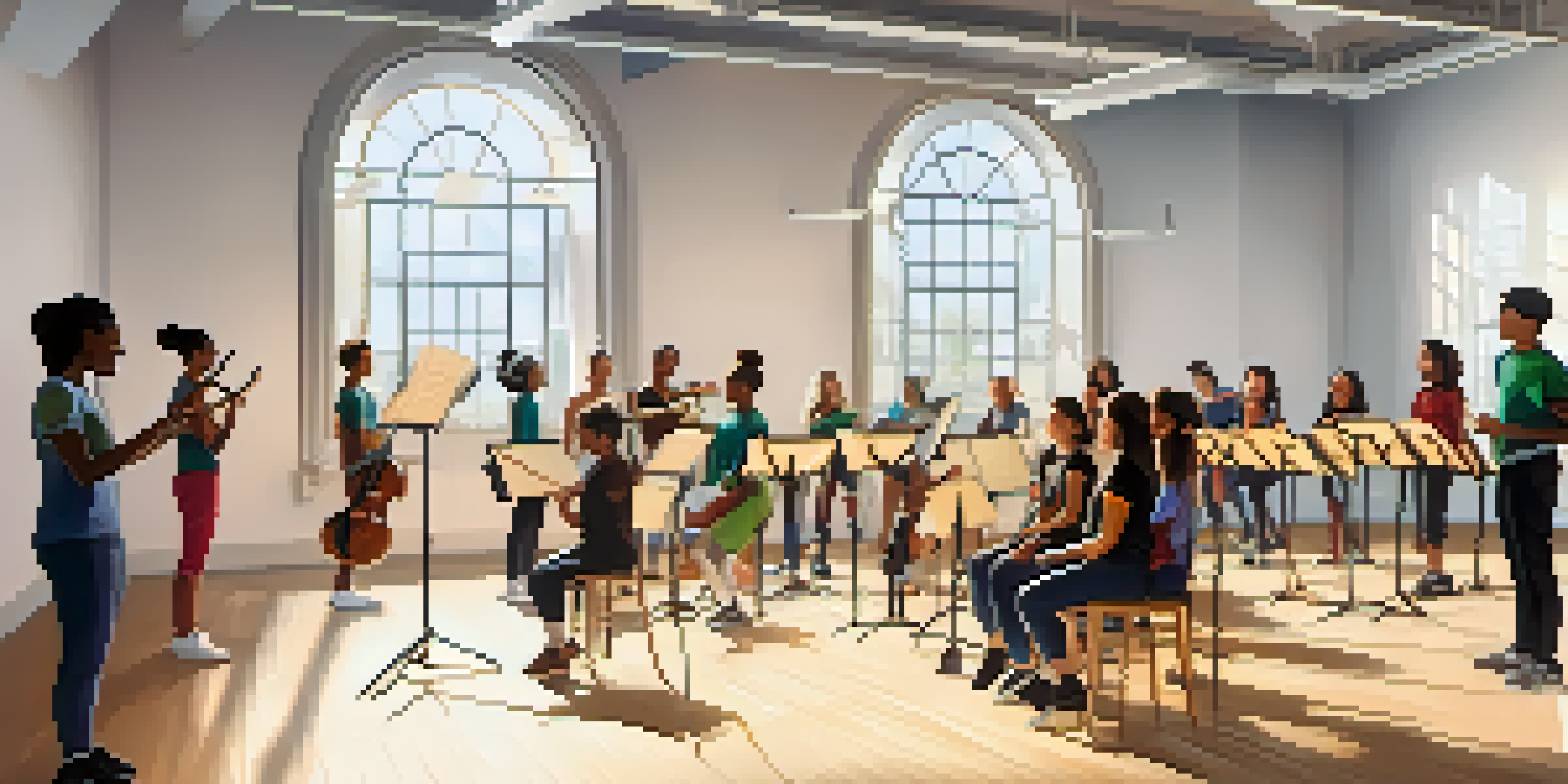Vocal Training Programs for Youth in Austin: A Complete Guide

Understanding the Importance of Vocal Training for Youth
Vocal training is crucial for young singers looking to develop their talents. Just like athletes train their bodies, singers need to train their voices to achieve their full potential. It helps in building confidence, improving vocal health, and enhancing performance skills.
The voice is the most powerful instrument of all, and it can be developed just like any other skill through practice and training.
Moreover, vocal training can also foster discipline and perseverance, qualities that are beneficial beyond music. Participating in a structured program encourages youth to set goals and work towards them, making the learning process rewarding.
In a vibrant city like Austin, where music is a way of life, having proper vocal training can open doors to various opportunities, from school choirs to community theater productions.
Top Vocal Training Programs Available in Austin
Austin offers a wealth of vocal training programs catering to different age groups and skill levels. Whether you're a beginner or an aspiring professional, there's something for everyone. Some popular options include music schools, community centers, and private studios.

Programs like the Austin School of Music and the Texas School of Music provide structured classes with experienced instructors. They focus on essential techniques, performance skills, and even songwriting, allowing students to explore their creative expression.
Vocal Training Builds Confidence
Vocal training not only enhances singing skills but also fosters discipline and self-assurance in youth.
Additionally, many local organizations offer workshops and summer camps that focus on vocal techniques and stage presence, making it easier for youth to find a program that fits their needs.
What to Look for in a Vocal Training Program
When searching for a vocal training program, it’s essential to consider several factors. Look for programs that offer tailored instruction based on the singer's individual needs and goals. A one-size-fits-all approach might not yield the best results.
Singing is not just a talent; it requires dedication, discipline, and the willingness to learn and grow.
Also, check the program's curriculum to ensure it covers various aspects of singing, including breath control, pitch accuracy, and performance techniques. This well-rounded approach will help young singers develop a comprehensive skill set.
Finally, consider the credentials and experience of the instructors. A knowledgeable teacher can inspire and motivate students, making the learning experience enjoyable and effective.
Benefits of Group vs. Individual Vocal Training
Both group and individual vocal training have unique advantages, and understanding these can help you choose the right fit. Group classes foster a sense of community and camaraderie, allowing young singers to learn from one another and build teamwork skills.
On the other hand, individual lessons provide personalized attention, enabling students to focus on their specific vocal challenges. This tailored approach can lead to more rapid improvement in technique and confidence.
Explore Diverse Musical Styles
Encouraging young singers to experiment with various genres boosts their versatility and helps them discover their unique voice.
Some programs even offer a blend of both, allowing students to benefit from the support of peers while still receiving individualized guidance.
Exploring Different Vocal Styles and Genres
Vocal training isn't just about classical singing; it encompasses a variety of styles and genres. From pop and rock to jazz and opera, exploring different musical styles can enhance a young singer’s versatility and creativity.
Encouraging youth to try out different genres can also help them discover their unique voice and style. Many programs incorporate diverse musical influences, allowing students to experiment and find what resonates with them.
This exploration not only keeps the learning process exciting but also prepares them for a broader range of performance opportunities in the future.
The Role of Performance Opportunities in Training
Performance opportunities are integral to vocal training, as they allow students to apply what they've learned in a real-world setting. Whether it's a small recital or a larger community event, performing can significantly boost confidence and stage presence.
Many vocal programs in Austin provide students with chances to showcase their talents, often culminating in end-of-term performances. These experiences can be invaluable, helping young singers learn to manage nerves and connect with an audience.
Performance Opportunities Are Key
Participating in performances allows students to apply their skills, build stage presence, and gain valuable feedback for improvement.
Moreover, feedback from performances can guide further development, highlighting areas of strength and aspects that may need improvement.
How to Support Your Child’s Vocal Training Journey
Supporting your child in their vocal training can make a significant difference in their progress. Encourage them to practice regularly and celebrate their achievements, no matter how small. This positive reinforcement can boost their motivation and enjoyment of singing.
It's also beneficial to attend their performances and show interest in their learning. Engaging with their music can create a supportive environment and help build a strong bond over their passion.

Finally, consider communicating with their instructors to stay informed about their progress and areas where your child may need extra encouragement or support.